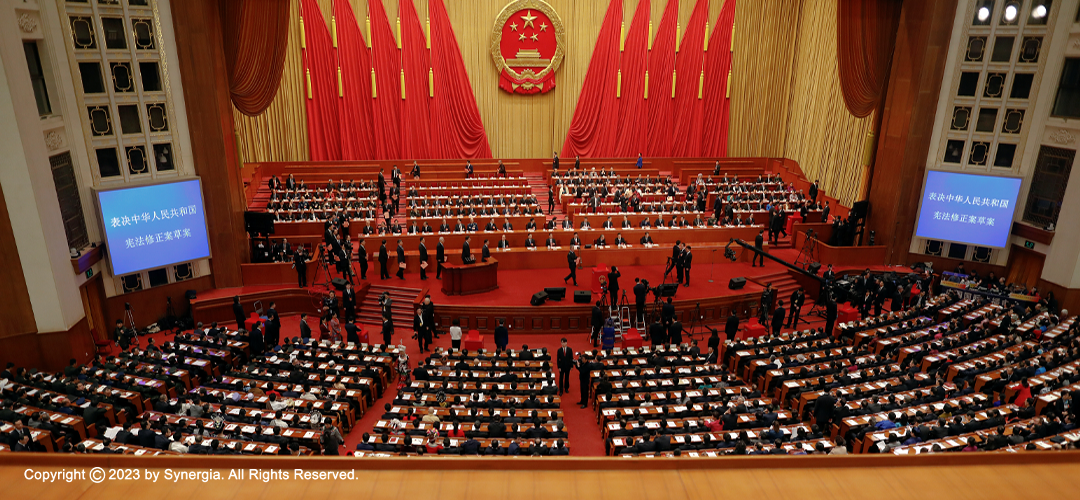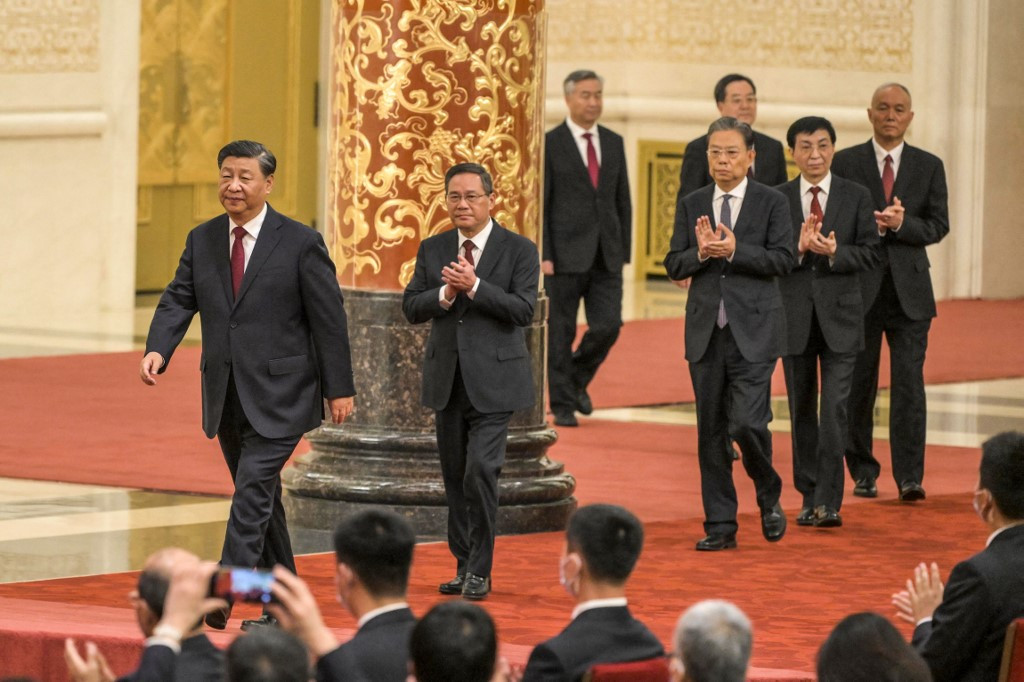Technology Scores Over Economics!
August 5, 2023 | Expert Insights

The Chinese Politburo, traditionally filled by economic technocrats, has recently undergone a transformation that emphasizes a strategic shift in the country's leadership policies, with a new emphasis on science and technology.
The decision to include five distinguished scientists among the 24-member Politburo at the 20th National Congress of the Communist Party of China (CPC) in October 2022 clearly indicates President Xi Jinping's commitment to fostering the country's economic, scientific, and technological independence. These include Professor Chen Jining, an environmental engineer with a PhD from UK, nuclear scientist Li Ganje, space scientist Ma Xingrui, rocket scientist Yuan Jiajun and a military -industrial expert Zhang Guoqing.
Of course, this unprecedented move could be a direct offshoot of the technological sanctions that China increasingly faces from the West, a perennial source that it had used for over five decades. With doors to the latest technology closing one by one, Beijing has no choice but to seek its technological nirvana from its home-grown scientists.
Background
The new appointments to the party's Politburo in October 2022 provide a clear sign of Xi's plans to expedite China's achievement of scientific autonomy. Five out of the 11 newcomers elected in 2022 to the 24-member 20th Politburo were leading scientists in a major departure from the last two decades.
Traditionally, the CPC's decision-making body was largely occupied by economic strategists. These five scientists, undoubtedly political disciples of Xi, have worked closely with him in the past. Their loyalty, successful records as leaders of state-owned enterprises (SOEs), university presidents, and provincial party secretaries, all strongly emphasising scientific innovation, are now rewarded with political influence. As Xi has effectively eliminated political competition and consolidated his supreme authority over the past decade, he also recognizes the need for experienced allies.
President Xi's long-standing goal to bolster China's domestic industry and promote scientific autonomy has gained momentum. This has obviously received an inadvertent boost from the increasing geopolitical and geo-economic challenges and attempts by the U.S. and its allies to limit China's access to vital technologies and research collaborations.
With the deadline of 2049 fast approaching, marking a century of Communist China’s evolution as the ‘Middle Empire", President Xi Jinping would like to present a technological and economic giant, second to none on the global stage. However, there are many obstacles to cross before this milestone is reached.
Among Beijing's priorities are to enhance China's capacity to address 'bottlenecks' in key technology sectors, to nurture domestic talent and 'return' expertise to lead innovation, and to create a robust digital economy that conforms to the CPC's governance standards. These initiatives aim to address concerns about China's ability to develop high-tech capabilities and the vulnerabilities caused by its reliance on foreign suppliers for critical components such as semiconductors and aircraft engines.

Analysis
China has the ambition and the financial means to push its science and technology agenda, and it has, over the decades, invested well in creating high technological hubs and institutions in China. However, China is a one-party state, and how much the state will foster or hinder innovations within the privacy of these centres of excellence, in the long run, remains uncertain. After all, in an authoritarian society obsessed with treason and espionage, faith and unfettered freedom of action is a rare commodity. Achieving significant scientific advancement hinges on researchers' ability to think critically and creatively and to engage in open dialogue with international peers. However, as the room for internal debate in China diminishes and its relations with the West become increasingly strained, the country may find meeting Xi's ambitious goals challenging.
Much of the discussion following the 20th National Congress of the Communist Party of China (CPC) in October 2022 centred on Xi Jinping securing a ground-breaking third term as General Secretary. Once this hurdle had been crossed, Xi Jinping had to induct a new generation of loyalists to the party's Politburo, particularly the all-important Standing Committee.
In the face of a domestic economic slowdown and escalating strategic competition with the US-led West, President Xi presented the National Congress with his blueprint for party legitimacy and China's economic resilience, emphasizing an accelerated effort towards economic and scientific independence. He stressed, "Education, science and technology, and human resources are the foundational and strategic pillars for building a modern socialist country in all respects. We must regard science and technology as our primary productive force, talent as our primary resource, and innovation as our primary growth driver. We will fully implement the strategy for invigorating China through science and education, the workforce development strategy, and the innovation-driven development strategy. We will open up new areas and new arenas in development and steadily foster new growth drivers and new strengths."
Thus, the core of Xi's third-term political agenda lies in economic development and domestic, or 'indigenous' as officially stated, innovation in science and technology to shield China from external pressures and persistent U.S. actions targeting Chinese technologies.
Xi's strategy for scientific independence includes enhancing China's capacity to overcome strategic technology sector 'bottlenecks', grooming domestic talent, and 'reshoring' expertise to lead innovation and to build a digital economy that aligns with the CPC's governance standards. His pronouncements on self-reliance ambitions have been generally vague but notably short on specifics.
Assessment
- For China, technological excellence is not the only criterion for finding a berth in the rare atmosphere of the Politburo. Their ascent would testify to their unwavering loyalty to the President first, then the CPC. Would such a system encourage the most qualified scientists for the job or the more pliable ones who would hesitate to call a spade a spade? This is a question to be pondered.
- Notwithstanding the loyalty meter, it is evident that this current generation of Chinese technocrats has achieved a lot in their respective fields of expertise. They now have a daunting task to navigate their country through the crucial two decades and propel domestic innovation that is genuinely Chinese in form and substance, not a watered-down copy of a foreign patent acquired overtly or covertly.








Comments